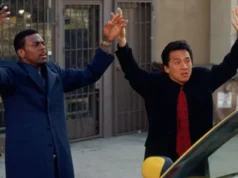From the battlefield to the tennis court, Felix Kammerer takes on a new challenge as he trains from scratch to portray WWII-era tennis legend Gottfried von Cramm.

Felix Kammerer, who earned wide praise for his role in All Quiet on the Western Front, is switching gears from battlefield drama to the tennis court.
Kammerer revealed at a Los Angeles red carpet event that he’s already begun preparing for Break, a World War II-era biopic about German tennis star Gottfried von Cramm — and he’s starting with almost no tennis experience.
The film will be directed by Daniel Brühl, who worked with Kammerer on their previous project, and it reunites much of the same creative team: costume designers, set builders, composers and other collaborators behind Kammerer’s earlier success.
The screenplay, adapted by Hossein Amini from Marshall Jon Fisher’s historical account, will trace von Cramm’s rise in the 1930s and the impossible choices he faced as his athletic fame collided with the pressures of the Nazi regime.
Kammerer was blunt about his readiness: “I have never held a tennis racquet before,” he said, noting only a handful of introductory lessons so far. With filming planned for next year, he intends to undergo a rigorous training schedule — roughly seven to eight months of focused practice — to learn the sport’s technique, footwork and timing well enough to portray a top-level athlete convincingly on screen.
The von Cramm story naturally lends itself to drama: this was a player who reached the top of his sport while living under an increasingly repressive government. The film promises more than match footage; it aims to explore how ambition, identity and personal relationships were tested when politics invaded sport.
One particularly tense moment in von Cramm’s life — his run in the 1937 Davis Cup — highlights how public success could turn into private danger under the Nazi spotlight.
From a filmmaking standpoint, Kammerer’s commitment to learning tennis is a strong sign. Sports biopics succeed when actors capture not just the look but the movements and instincts of their subjects. Still, the project faces a delicate balance: it must deliver believable athletic performance without losing the emotional depth of von Cramm’s moral and personal conflict.
Brühl’s transition from actor to director will be closely watched; his familiarity with the material and with Kammerer could help the film find that balance.
If Break matches the craft and moral seriousness of Kammerer’s earlier work, it could become a compelling portrait of an athlete caught between greatness and a dangerous moment in history — and a showcase of the actor’s willingness to start anew and transform himself for a role.











